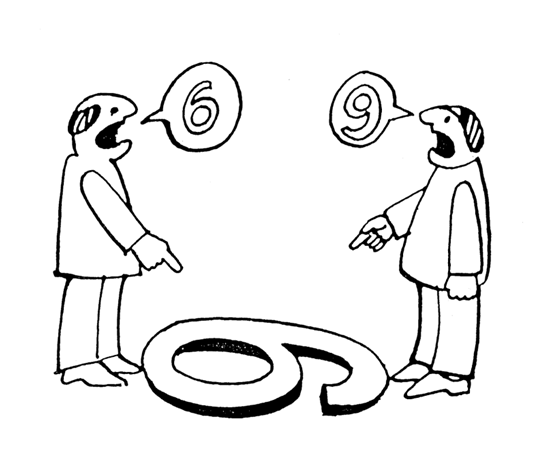PH211: Ethics
Mackie's Moral Error Theory
Autumn Term, Week 8: Lecture 1
Overview
1. What is an Error Theory?
2. Moral Error Theory
3. Mackie's Moral Error Theory: The Conceptual Claim
4. Mackie's Moral Error Theory: The Ontological Claim
5. Ways of Responding to Mackie's Error Theory
1. What is an Error Theory?
Take a certain kind of discourse, for example: theological, arithmetical, aesthetic, sociological, discourse about unobservable entities...
The Error Theorist about that kind of discourse says that the judgements belonging to it are systematically false: they are all false, and for a single reason.
Somewhat inchoately: the judgments belonging to that discourse carry with them a certain metaphysical presupposition. That presupposition is false. So: each of the judgements is false too.
The Ingredients of an Error Theory
Error theorists can be thought of as making two claims about the kind of discourse, D:
Conceptual Claim: (i) the judgements belonging to D express beliefs and (ii) for any judgement belonging to D, that judgement is true only if a certain kind of fact obtains.
Ontological Claim: Facts of that kind do not obtain.
Notice that the first conjunct of the Conceptual Claim is that D has a Cognitivist character.
An Example
Consider theological discourse, e.g. 'God is the Father, Son, and Holy Spirit', 'God is wise', 'God is vengeful'...
An Error Theorist about theological discourse would say:
Conceptual Claim-T: (i) Theological judgements express beliefs and (ii) are true only if there exists a certain kind of supernatural entity: God, who has the property attributed to him.
Ontological Claim-T: There is no such entity.
So: theological discourse is systematically false.
2. Moral Error Theory
Moral Error Theory is Error Theory about Moral Discourse. So, it makes the following claims:
Conceptual Claim: (i) Moral judgements express beliefs (Cognitivism about Moral Judgement) and (ii) for any moral judgement, that judgement is true only if a certain kind of fact obtains.
Ontological Claim: Facts of that kind do not obtain.
But what kinds of facts are at issue? Different versions of Moral Error Theory are individuated by their different answers to that question.
Two Clarifications
Moral Error Theory ≠ Moral Realism. Although it ascribes a Cognitivist character to moral judgement, Moral Error Theory is not Realism, at the very least because Realism says that at least some of our moral judgements are true.
Moral Error Theory ≠ First-Order Position. Someone who 'rejects morality' could be construed as suggesting that we should abandon the claims of ordinary morality, in favour of some other ethical system. That would be a position in Normative Ethics, not Error Theory.
A Nihilistic Doctrine?
Consider quite how radical Moral Error Theory is.

It seems to council us to abandon all of our ethical judgements, whether the claims of ordinary morality, or of some alternative system.
It's never literally correct to think that this person is good, that action is wrong, that that state of affairs is unjust...
3. Mackie's Conceptual Claim
Moral judgements express beliefs.
Moral judgements are true only if there exist objective, categorically prescriptive, intrinsically motivating moral facts.
+
Example: 'It was wrong of Alan to murder Jimmy' expresses a belief which is true only if Alan's murder of Jimmy has the property of wrongness, where this is an objective affair, is categorically prescriptive, and is intrinsically motivating.
The Claim to Objectivity
Mackie identifies the thought that moral facts are objective with the thought expressed by the slogan 'morality is part of the fabric of the world'.
As we will be understanding it, this is just to say that moral facts obtain mind-independently. The wrongness of Alan's murder is a feature it exemplifies not because any set of actual or possible persons take certain attitudes towards it.
Thus, Mackie ascribes a Realist character to moral judgement. Though, to repeat, he is not a Moral Realist.
Categorically Prescriptive
Some of the reasons I have to do things are reasons for me only because of what desires, tastes, wants, needs... I have - e.g. the reason I have to watch the snooker.
But moral reasons are not like this, so many philosophers including Mackie want to say. I have a reason to keep my promises even if I have no desire to keep them.
To say that moral facts are categorically prescriptive is to say that the obtaining of that fact implies that the relevant agent has a categorical reason to act in a certain way in response to it.
Intrinsically Motivating
Suppose I judge that breaking one's promises is wrong. Absent weakness of will, a state of depression, and the like, am I thereby motivated to keep my promises? Or does my judgement have be supplemented with an independent desire to keep promises, or do the right thing, in order for me to feel a pull towards doing so?
To say that moral facts are intrinsically motivating is to say that apprehending the presence of a moral fact does thereby render one motivated to act in accordance with it. It is not possible to be left cold by morality, if one recognises it at all.
A Phenomenological Argument
Putting all this together, Mackie thinks that moral judgements commit us to a mind-independent world of facts which give us reasons no matter what our pre-existing desires or tastes and which upon apprehension are guaranteed to exert an influence on our will.
This is supposed to be the correct way of capturing what it is like for us to make moral judgements.
4. Mackie's Ontological Claim
There are no mind-independent, categorically prescriptive, intrinsically motivating moral facts.
The arguments:
i) The Argument from Relativity
ii) The Argument from Queerness
a) The Argument from Metaphysical Queerness
b) The argument from Epistemological Queerness
The Argument from Relativity
As a matter of fact, there is widespread disagreement between individuals and across cultures on moral matters.

This disagreement is not only widespread, but looks intractable: it doesn't arise simply because of some non-moral mistake lurking in the background.
Best explanation of this: morality is not an objective affair.
The Argument from Metaphysical Queerness
‘If there were objective values, then they would be en-
tities or qualities or relations of a very strange sort, utterly different from anything else in the
universe’ (Mackie, 1977: 38)
Wouldn't it simply be bizarre if the world turned out to contain such entities? Compare Plato's Forms.
Also: if there were such entities, how could we fit them into a naturalistic world-view? It looks impossible to account naturalistically for how the moral facts depend on the non-moral facts, after-all.
The Argument from Epistemological Queerness
`...if we were aware of them [objective values], it would have to be by some special faculty of moral perception or intuition, utterly different from our ordinary ways of knowing anything else' (Mackie, 1977: 38)
Again, wouldn't it be incredible if we had such a special faculty of intuition?
Also: wouldn't our understanding of what such a faculty is be uninformatively circular?
Note: both arguments from queerness have the status of onus-shifting moves, not knock-down objections.
5. Responding to Mackie's Error Theory
Denying the Conceptual Claim: does the phenomenology really support ascribing a Realist character to Moral Judgement? Non-cognitivists and Constructivists deny this.
Denying the Ontological Claim: epistemic oughts ('you ought to believe that p') and prudential oughts ('you ought to go to the dentist') are not kinds of oughts which we find queer, but they seem to have the same character as moral oughts.
Mackie's Error Theory
By Joe Cunningham
Mackie's Error Theory
Ethics Guest Lecture
- 49



